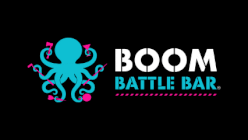In case you missed it see what’s in this section
Let's Talk
Credit Card Debt: Practical Money Tips to Break the Cycle
In today’s consumer-driven society, credit cards have become a convenient and widely-used payment tool. However, the ease of swiping a credit card can sometimes lead to overspending and, in some cases, debt.
For some people, credit card debt can quickly spiral out of control, resulting in financial stress and limited options. This article will explore practical money tips to help you break the cycle of credit card debt and achieve some much-needed relief from the burden of debt.
What is Credit Card Debt?
Before delving into how to break the cycle of credit card debt, it’s essential to understand what credit card debt entails. Put simply, credit card debt is the unpaid balance that accumulates on your credit card account, including the principal amount borrowed, interest charges, and any additional fees. Having a credit card balance means you owe money to the credit card issuer, and failure to manage it effectively can lead to financial difficulties, such as debt. There are various solutions to help you break the cycle of credit card debt, including a Trust Deed. Find out more info about Trust Deeds in Scotland before making an informed decision.
Assess your Credit Card Debt
The first step towards breaking the cycle of credit card debt is assessing your current situation. Start by gathering and organising all your credit card statements to have a clear understanding of your total debt level. Then, calculate the total amount owed, including each outstanding balance. Reviewing your credit card statements will provide valuable information about interest rates, minimum payments, and due dates. Pay attention to the terms and conditions of your credit cards, including penalty fees and any promotional offers. This assessment will serve as the foundation for developing a repayment strategy that works for you.
Create a Repayment Strategy
To tackle credit card debt effectively, you must have a suitable repayment strategy in place. Assess your income, expenses, and available resources to determine how much you can allocate towards the credit card repayment process each month. This evaluation will help you establish a realistic timeframe for becoming debt-free. However, if you have multiple credit cards with outstanding balances, it may be helpful to prioritise them based on interest rates and outstanding amounts. One option is to focus on paying off the card with the highest interest rate while making minimum payments on other cards. Once the highest-interest card is paid off, you can move on to the next one on the list.
Cut Expenses and Increase Income
Finding areas to cut expenses and increase income can help you break the cycle of credit card debt. Analyse your spending habits and identify areas where you can cut non-essential costs. For example, dining out, entertainment subscriptions, or impulse purchases. By being mindful of your spending, you can allocate more funds towards debt repayment. Alternatively, consider exploring additional sources of income, such as taking on a part-time job, freelancing, or utilising your skills to earn extra money. Directing this extra income towards credit card debt can speed up the debt repayment process.
Negotiate with Creditors
Reach out to your credit card issuers to negotiate lower interest rates or more favourable repayment terms. Explain your financial situation and demonstrate your commitment to repaying the debt. Creditors may be willing to work with you to find a mutually beneficial solution if you can guarantee they will receive the full or partial amount they are owed. However, if negotiations with creditors prove challenging or your debt solution becomes overwhelming, consider seeking guidance from credit counselling services. These organisations can provide expert advice on debt management and help negotiate repayment plans on your behalf.
Consider Balance Transfer or Debt Consolidation
Having credit card debt can be daunting, but you have several options. For example, if you have a credit card with a high interest rate, explore the option of transferring the balance to a card with a lower or zero interest introductory period. This allows you to save on interest charges and focus on paying down the principal amount owed. Alternatively, consolidating your credit card debts into a single loan with a lower interest rate can simplify the repayment process and potentially reduce your monthly payments. However, it is essential to carefully consider the terms and fees associated with these options before proceeding.
Build an Emergency Fund
When you’re dealing with credit card debt, it’s essential to build a financial safety net to handle unexpected expenses. Set aside a portion of your income each month and put it towards an emergency fund. Having this fund in place will prevent the need to rely on credit cards for unforeseen circumstances, avoiding further debt accumulation. There is no set amount you should aim to deposit into your emergency fund, but most financial experts recommend between three to six months’ worth of living expenses. This should be enough to cover the cost of a sudden job loss, medical bill, or car or home repair. Most budgets fluctuate from time to time, so your savings may also fluctuate as your circumstances change.
Identify Spending Triggers
Breaking the cycle of credit card debt requires a change in spending habits. Having credit card debt is typically a sign that you could benefit from making smarter spending decisions and using credit cards more responsibly. Understand the factors that contribute to impulsive purchases, such as emotional triggers or shopping habits. By recognising these triggers, you can develop strategies to avoid or overcome them, ultimately curbing unnecessary spending. Some people spend more money when they’re happy while others spend more when they’re stressed or upset. Knowing how your emotions affect your spending habits is key to getting to the root of the problem and fixing your financial situation for good.
Credit card debt can be overwhelming, but by implementing practical money tips and adopting responsible financial habits, you can break the cycle and achieve relief from credit card debt. Remember to seek professional assistance when you need it and stay motivated throughout your debt repayment journey. By taking control of your finances, you can pave the way to a more secure future free from the burden of credit card debt.
Weather in Bath
Listings


















